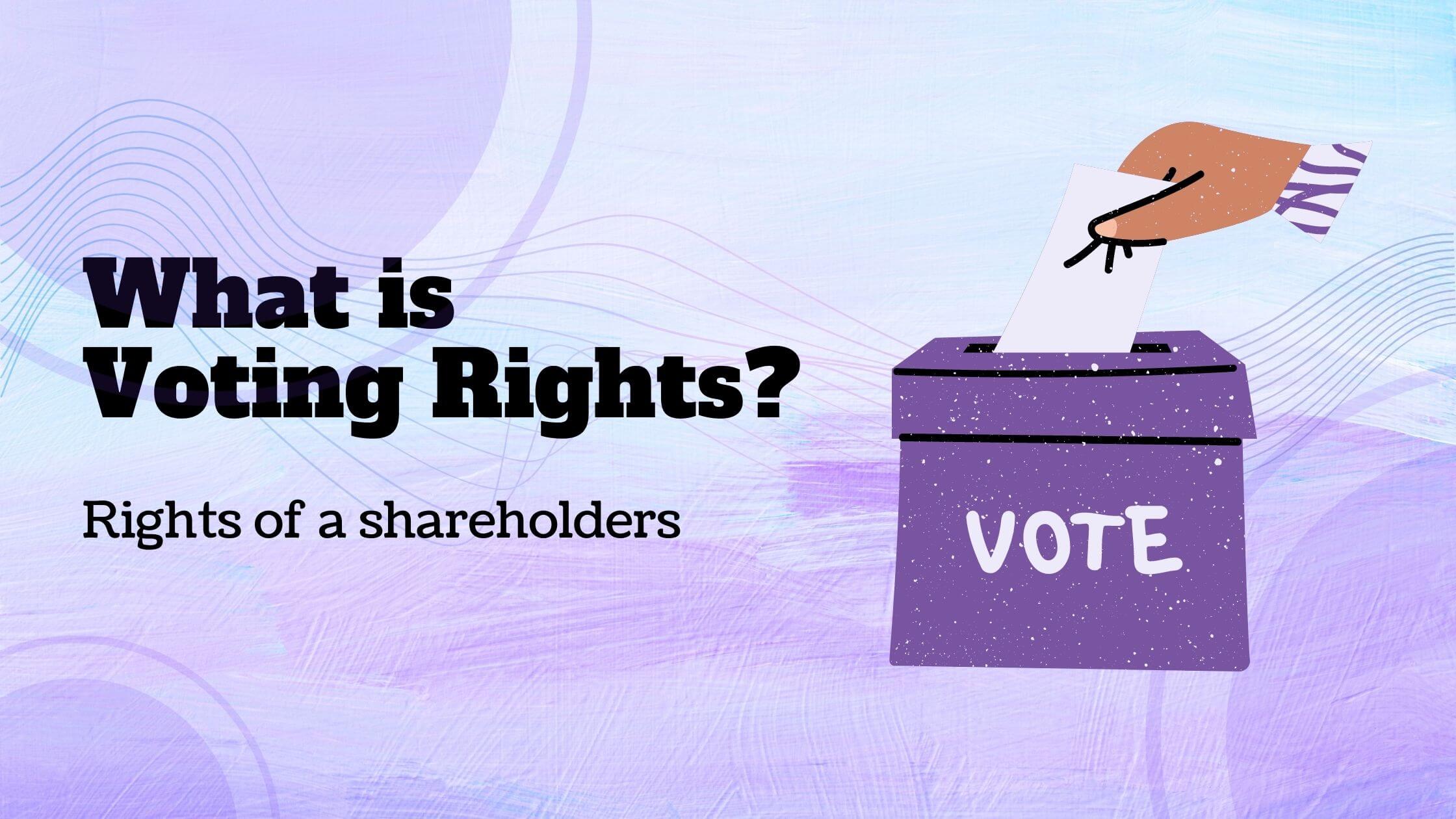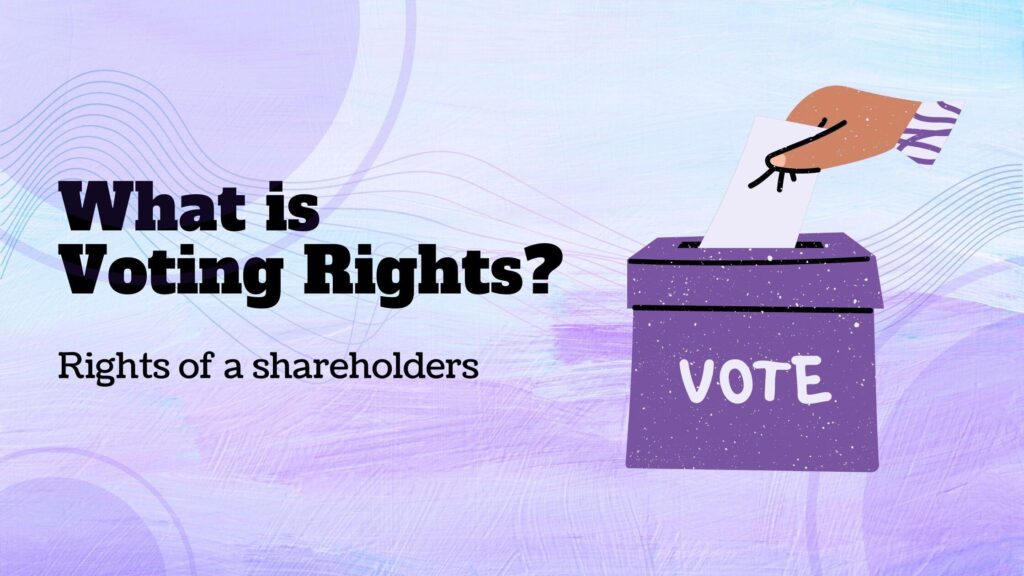

What comes to your mind when someone asks you about voting rights.
so we are going to talk about the voting rights of a shareholder. Let’s get down to basics first.
Voting right is the right of a shareholder to vote at a company’s annual general meeting.
In other words, we can say that a voting right is the right of a company’s shareholders to vote on issues or businesses. He/she can vote on the integration of the board of directors, and can also vote on corporate activities. These activities may be mergers or acquisitions of other businesses or dividends. They can also vote on companies’ operations.
Shareholders are generally notified of the annual meeting by mail, which includes a package summarizing the main issues to be discussed at the company meeting. These can include topics such as:
Section 47 of the Companies Act 2013 addresses the voting rights of a company’s shareholders.

To sum up the whole article in a few sentences.
We hope We gave you some insights about the voting rights of a shareholder and delivered it in the best possible way.
Let us know what you think about the voting rights of a shareholder. leave your precious comment, and We will respond to it.
DO SHARE THIS ARTICLE with your friends or family. You can tweet out your thoughts by tagging us @rupayrajat on Twitter or on Instagram.
To your Investing and Financial Journey
Cheers

Rupay Rajat is a financial and investing blog. I write about financial instruments and the stock market in the most easiest language.
Latest Post

Let’s Unveiling the Power of Compounding in the Stock Market

Mutual fund vs Fixed deposit – Where should you Invest?

How to invest in Mutual Funds? Easy Ways to Invest

What is Mutual Fund? Simple Types of Mutual Fund

29 Best Stock Market Websites (Useful Websites and Apps)

What is the difference between share market and stock market?

How the Stock Market Works in an Unusual Way

What is the Buyback of shares? What happens after Buyback?

What is Bonus Share? How Can I get One?

What is Stock Split? What will happen to shares after that?

What is the Book Value of a share? Valuation Metric of Share

What is the Face Value of the Share? Importance, Example

What are the voting rights of a shareholder? Importance

What is an Adjustable peg? Effect of Forex Market

What is Adhoc Margin? Who Collects from Whom?